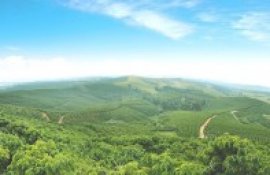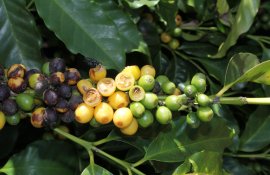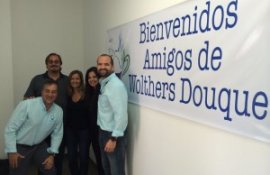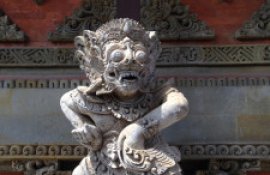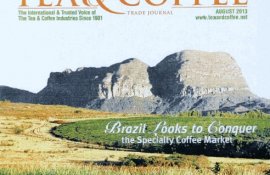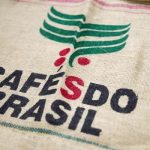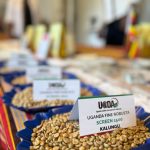Just back from Colombia and Panama
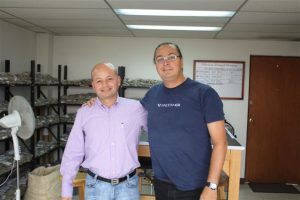 With all the uncertainties regarding the future Colombian coffee supply to America and Europe, I thought it was time to get into the valley and talk to my people on the spot in Bogota.
With all the uncertainties regarding the future Colombian coffee supply to America and Europe, I thought it was time to get into the valley and talk to my people on the spot in Bogota.
Wolthers America has an office in Bogota, Wolthers, Vittrup & Associates performs Quality Assurance/Quality Control on exports of green coffee, commissioned by US and European Roasters and Food companies.
Hector Posada, our Manager in Bogota, is a certified Q Grader and has won a series of local and International cupping competitions. Hector is my contact to what’s happening locally regarding the Quality and potential volume output as well as local related news reports.
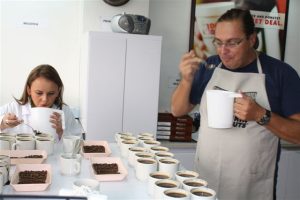 During my stay, I had the opportunity to cup some great coffees of the Current “Mitaca” crop, UGQ’s from Risaralda and North Santander, then some higher grown Cauca, Huila and an extraordinary Nariño from the main crop. The Nariño scored way over the SCAA 90 points.
During my stay, I had the opportunity to cup some great coffees of the Current “Mitaca” crop, UGQ’s from Risaralda and North Santander, then some higher grown Cauca, Huila and an extraordinary Nariño from the main crop. The Nariño scored way over the SCAA 90 points.
The coffees tested represent the greater Colombian coffee regions and they impressed me very much. The green preparation and the roast were next to perfect and the cup quality made me know where exactly I was in the global coffee map.
I expect Colombia to return towards higher volume and better quality in the coming year. It’s difficult to point out a more precise crop number, but the 10 million bags keep falling on to my table from different sources.
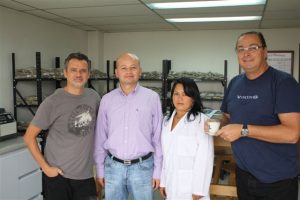 Whatever the overall harvest number will be, it’s clear that volume is on the rise again and that the quality is well above the past years average. During these days in Colombia last week, I had the opportunity to cup many different regional coffees, speak with many specialized coffee professionals and learn from the local news reports that the production situation was in fact improving. I now feel that the worst is behind us.
Whatever the overall harvest number will be, it’s clear that volume is on the rise again and that the quality is well above the past years average. During these days in Colombia last week, I had the opportunity to cup many different regional coffees, speak with many specialized coffee professionals and learn from the local news reports that the production situation was in fact improving. I now feel that the worst is behind us.
The Market should already be experiencing a gradual reduction on differential prices as well as an increasing exposure to new excellent quality coming from the Colombian suppliers. Finally some good news!
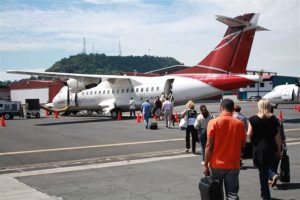 From Colombia, I flew to Panama City and, from there, I took a high wing small twin propeller plane to David, in the North Western Region of the Country. My final destination was Boquete.
From Colombia, I flew to Panama City and, from there, I took a high wing small twin propeller plane to David, in the North Western Region of the Country. My final destination was Boquete.
From David, a short 50 minute car ride towards the Central mountain rim to the Chiriqui Province and into the Boquete Valley at about 4.000 ‘ to 6.000’ altitude. Boquete is located on the slopes of the Mount Baru Volcano area. In Boquete, the climate, volcanic rich soil and the average temperate yearly temperature attracted foreign immigrants and local visionaries to settle and start planting coffee about 100 years ago.
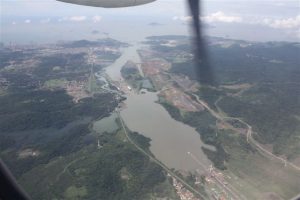 Today, Bouquet’s population is a mosaic of many different nationalities that settled there as retirees, hotel or restaurant professionals, many more as Finca owners focused in cultivating very fine coffees under open sky and mainly under the natural forest reserves all around the valley.
Today, Bouquet’s population is a mosaic of many different nationalities that settled there as retirees, hotel or restaurant professionals, many more as Finca owners focused in cultivating very fine coffees under open sky and mainly under the natural forest reserves all around the valley.
In the last 4 years, a couple of Fincas have reached first place in Cup Quality Auctions competing against the best coffees of the world. The coffee plants that mothered these unique outstanding beans are ancient “Geisha” Arabica plants, original from Ethiopia.
Prices for these winning coffees reached a historic record high of $ 130.00 p/lb at the last auction in 2009. This represents over $ 17,000.00 for a 132 lb green coffee bag!! If you break the price down to cost per cup, it reflects $ 4.00 per cup before any operational retail or distribution costs, stores are selling these winning coffees at $ 15.00 per 12 oz cup in Coffee Shops around the world.
So what was I doing in Boquete when this region has already found record high prices and global notoriety? What could there be yet to be explored, which stone or rock was still unturned?
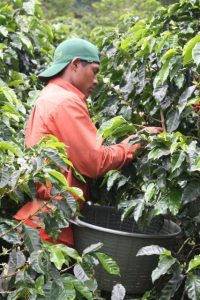 I believe that every star hides an unseen beautiful backyard, not to mention the rich learning opportunities that come with exploring places I have never visited before, with this in mind, Boquete seemed like a great destination.
I believe that every star hides an unseen beautiful backyard, not to mention the rich learning opportunities that come with exploring places I have never visited before, with this in mind, Boquete seemed like a great destination.
As I arrived to the town square, soon my local contact and coffee Finca Guide Hans arrived to pick me up for a drive up the mountains to visit some Fincas. At the the Kotowa Estate, our first stop, I had the chance to see some of the last seasonal harvesting, Ngobe-Bugle Tribe Indians, were harvesting the last cherries as new flowerings had already opened just a couple of days before.
These Local tribe Indians hired to harvest coffee in the region do not communicate nor even look at any foreigners. A field manager is always around to manage the harvest and to communicate with them. It took me some time to learn that they were not deaf as I made a series of questions about their harvesting practices. They were in fact ignoring me.
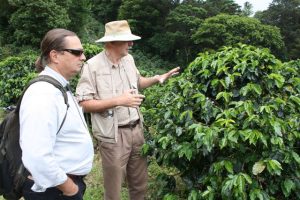 Hans stepped in and explained the habit while directing me to the Manager who later gave full explanation about what the procedures were. While many Fincas have a lot of natural forest around the coffee trees, many more cultivate coffee under total shade, specially the full organic ones.
Hans stepped in and explained the habit while directing me to the Manager who later gave full explanation about what the procedures were. While many Fincas have a lot of natural forest around the coffee trees, many more cultivate coffee under total shade, specially the full organic ones.
I also learned that the great majority of Fincas in Boquete now do Pulped and Demusilated preparation instead of wet/water tank fermentation preparation therefore, avoiding any damage to the rivers and underground water resources.
The drying patios exist for pre drying but most Fincas are structured with modern Pinhalense horizontal indirect heat dryers.
While I have seen many farms and Fincas around the world, this was the first time that I saw “hand picking” for defective green beans made by indigenous teenagers and women, in Panama, youngsters can start to work for a wage at age 14.
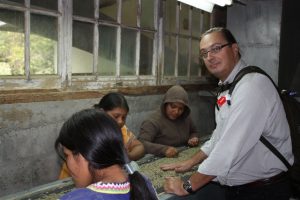 Learning about how coffees are planted and how they are prepared in Boquete was very interesting, cupping some samples completed the scenario, I was offered samples from the Kotowa Estate and an organic sample from the Duncan Estate.
Learning about how coffees are planted and how they are prepared in Boquete was very interesting, cupping some samples completed the scenario, I was offered samples from the Kotowa Estate and an organic sample from the Duncan Estate.
Both coffees scored very high being fruits from Mundo Novo and Yellow Catuai varietals, the most exiting though was the Organic preparation from the Dunkan Estate. This coffee had very good body, low acidity, intense sweetness, plenty of caramel and chocolate impressions.
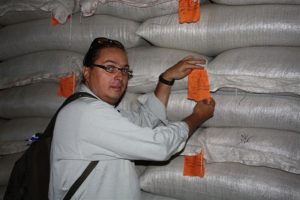 Back in 2006, the Dunkan Estate earned the fourth best in the World at the SCAA Atlanta Cup Quality Competition, it remains a very special coffee today, probably overseen by most as all attentions are concentrated on the neighbor Geisha fruits, the actual “Stars”.
Back in 2006, the Dunkan Estate earned the fourth best in the World at the SCAA Atlanta Cup Quality Competition, it remains a very special coffee today, probably overseen by most as all attentions are concentrated on the neighbor Geisha fruits, the actual “Stars”.
Regarding the Geisha coffees, in case you want to buy this coffee, stick to the very known supply channels as what I noticed during the visit, is that every 3rd person down in Boquete told me they are planting the wonder plants, even the local cab driver offered me seeds at $ 0.60 cents each or nursery plants at $1.00 ….. Really?
After this quick visit to Panamas beautiful coffee belt, it was time to return to my base and sell some coffee. Hopefully, soon I will also carry some very special Boquete coffees and widen my offer list.
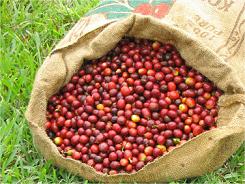 In Brazil, Most Arabica coffee regions are already harvesting coffee. The Ipanema Farms have also started the harvest procedures and are concentrating on the full washed and Pulped Natural preparations. The dry weather conditions and the maturation development are promoting ideal conditions to produce high quality coffees.
In Brazil, Most Arabica coffee regions are already harvesting coffee. The Ipanema Farms have also started the harvest procedures and are concentrating on the full washed and Pulped Natural preparations. The dry weather conditions and the maturation development are promoting ideal conditions to produce high quality coffees.
This year, Ipanema will increase its output of specialty and premium coffees as the whole logistic and preparation areas have been renewed and upgraded. The 2010/2011 new crop coffees from Ipanema will start arriving into US ports by mid September this year.
Beware of the Brazilian Winter! A first early cold front has already passed over the Arabica coffee belt this week bringing record low temperatures for the season. As the El Nino climate effects are loosing strength, a very intense and eventful winter is expected, my feeling is we are bound towards a very rough ride this year.
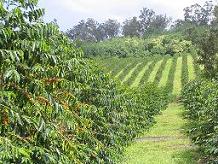 Meanwhile, Nucoffee has shipped to the East Coast, another container with 12 Micro lots with SCAA 84 and + points, these will arrive at All Jay’s by end of May/10. In case you have interest, inform us and we will send you samples. Interest on our West Coast landed Nucoffee Micro lots has been overwhelming, lots of arrival samples are on the road, still time to send new samples out.
Meanwhile, Nucoffee has shipped to the East Coast, another container with 12 Micro lots with SCAA 84 and + points, these will arrive at All Jay’s by end of May/10. In case you have interest, inform us and we will send you samples. Interest on our West Coast landed Nucoffee Micro lots has been overwhelming, lots of arrival samples are on the road, still time to send new samples out.
All of these Micro Lots are ” Single Pearls ” that reflect the taylored kare of the producer and the exuberance of sweetness and intense basic flavor notes.
The Kona Parry Estate RA Certified current crop coffees spot at the Annex, are selling very well, Both USA and Europe have been drawing from our inventory in California and direct from the farm in Hawaii. Many of our clients told me this is the best coffee they have purchased from Kona.
Samples are available upon request, try our # 1’s and the Primes as a 100% Kona Coffee new product or as base for your Kona Blend , I remind you that this is the only Rainforest Alliance Certified coffee in the Islands!
Tanzania Peaberries and Guatemalan Huehuetenangos, Papua New Guinea and Sumatra Mandehling are also available at Spot or arriving in Miami, please contact us regarding pricing in case of interest.
Thanks for now and have a great coffee week!
Christian Wolthers
Category: Archives




